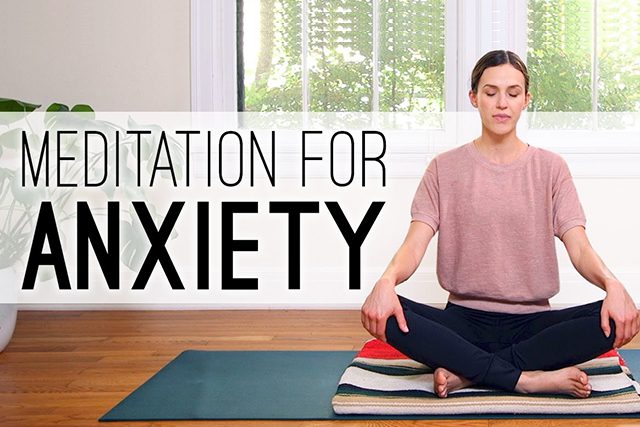We propose several factors and their relationships as a strategy for achieving happiness in life.
Happiness, of course, is a subjective construct. It is closely related to what one values in life. The more one receives value; the more one can expect to be happy. Alas, this simplistic perspective somehow does not ring true. Things are just not that simple. Does the question then become, what is the formula for happiness? Well, one cannot propose a procedure without exception or difference. The optimal outcome is a formula that works for most.
The Formula
Upon careful thought, this formula seems most accurate.
H = LP (I2 – (a + c))
It is not a mathematical formula. It is not a precise algebraic equation. Instead, it is a Philosophical, or perhaps even Psychological, the paradigm of life. Yet, if we live our lives understanding and employing this formula, we can expect to achieve happiness more frequently than not. Therefore, the individual factors of this formula are worth considering.
Love
The first is love (L). When we can experience love and express love, we tap into the very essence of our souls. SNo love knows no God, says the Bible; God is love” (I John 4:8). The same sense of our being is love. Real love sustains, enriches, and energizes us to maximize life. When we have a genuine love of God and each other, we can mitigate or nullify many of the obstacles or forces that would seek to destroy our happiness. The qualifier is “real” love. The answer to this is also found in Scripture. In I Corinthians 13:13, Paul defines love.
Theologians call the love we speak of here “Agape Love” (Carson, 2000). It is a selfless, sacrificial love that is unconditional. It is that love God offers us even though we are undeserving. It’s our love for one other. You must revere the Lord your God. Priority one. Second. Each commandment is hung on these two (Matthew 22:37-40)
Purpose
The second factor is purpose. The purpose is the end to which we seek to obtain in life. It is the primary purpose of and for a person’s life. It is your calling in life. It is that thing to which we dedicate our effort and our thought. It answers the questions of why, and for what, where you created. It includes our goals and objectives.
We mark it by our milestones and progress steps. It reflects our values and our core life vision. Finally, our contribution to the world is answered. When one has a purpose, one will have drive. Drive is that quality that enables us to rise every day and persevere despite mammoth adversity (Frankl, 2006). Without purpose, one exists and reacts to every shift in life—those with a clear sense of purpose experience life on their terms. For them, it ideally provides meaning. Meaning gives importance to one’s life.
Relationships
The following few factors focus on one in their existence among others. We consider these factors to confine one’s community and hence the parenthesis. The first of these factors is the “I” factor. This factor represents a relationship. There are two dimensions of the “I” factor: intrapersonal and interpersonal relationships. Both are essential and dynamic (Vohs & Finkel, 2006). We measure their significance by squaring (or multiplying each against the other) the dimensions.
Intrapersonal Relationship
The intrapersonal relationship is the relationship we have with ourselves. When we love ourselves, we enjoy positive intrapersonal relationships. When we have an appropriate sense of ego strength, we can develop positive self-love. With positive self-love, we can have a strong sense of resilience which empowers us to withstand the assaults of life.
When we love ourselves, we have a sense of autonomy and integrity that is not dependent or determined by others. Yet, it enables us to love others more deeply. We can develop boundaries and a sense of ethics that structure our purpose in life with self-love.
Interpersonal Relationships
The other dimension of the “I” factor in interpersonal relationships. It is our relationship with others. When we enjoy positive relationships with others, our need for companionship and social interaction is satisfied. Biologically, humans seek social connections. We do not do well in isolation. We are enriched, rewarded, and personally enhanced by finding positive relationships. Our relationships within the community develop the others factors in our equation.
As we interact, we learn of others’ needs and our capacity to meet these needs. It, then, forms our purpose. Continued isolation, or solitude, is harmful to our psyche and leads to all other sorts of pathology.
We square the “I” dimensions to measure our relationships accurately. When we have a high standard of “I” squared, we have balance in our lives, and most importantly, our psyches are intact. A strong “I” provides safety, which allows us to engage in the pursuit of happiness. Conversely, the low strength of “I” nullifies all of the other factors and, in turn, destroys our ability to be happy.
Threats to Relationships
There are several threats to a high measure of “I.” Perhaps none more threatening than our remaining factors of (a +c). The “a” factor is Anger. The “c” factor is Conflict. Anger is a strong emotion that may be harmful. Destructive Anger directed externally destroys Interpersonal relationships. While Anger directed internally, often called depression, destroys personal stability and capacity.
The goal, therefore, has to be to minimize the result of (a +c). In other words, to pursue and/or realize happiness, we must minimize our destructive Anger and Conflict. Scripture provides; “An angry man stirreth up strife, and a furious man aboundeth in transgression” (Proverbs 29:22). Scripture cautions, “No relationship with an angry guy, no going near a furious man, lest you learn his methods and fall into his trap (Proverbs 22:24-25).
We need to realize not all Anger is destructive; some can be pretty beneficial. The determining issue is how we express our Anger. When expressed through Conflict, we are mitigating against our ability to be happy. We have to realize there may be instances when we cannot avoid Anger and Conflict. However, we need to control the damage in those instances and open paths towards reconciliation. Holding umbrage towards others is a sure deterrent towards happiness. Learning to forgive others for their trespasses has to be a priority.
Bringing it Together
We can recognize happiness by realizing how these factors work and devise strategies to accentuate the good and avoid the bad. Therefore, the vehicle for employing this equation is the strategies we develop for living life. Happiness becomes an achievable reality when we remain aware of ourselves and work the formula.









